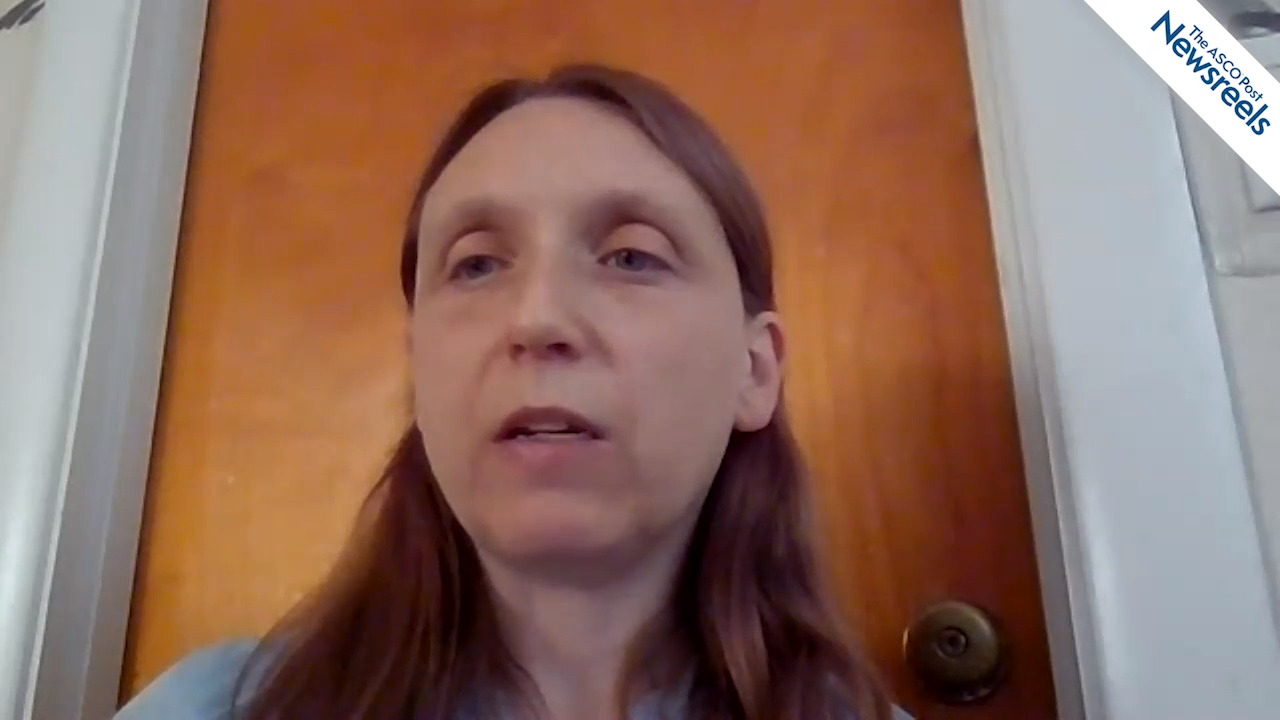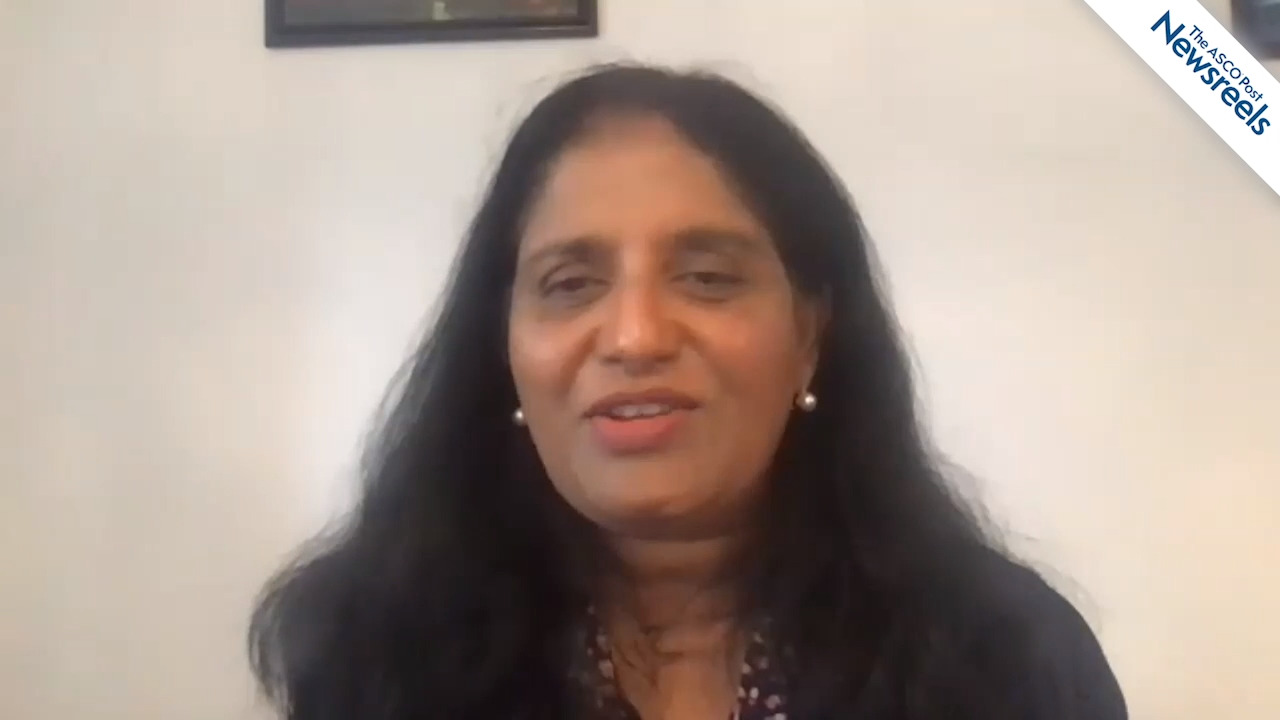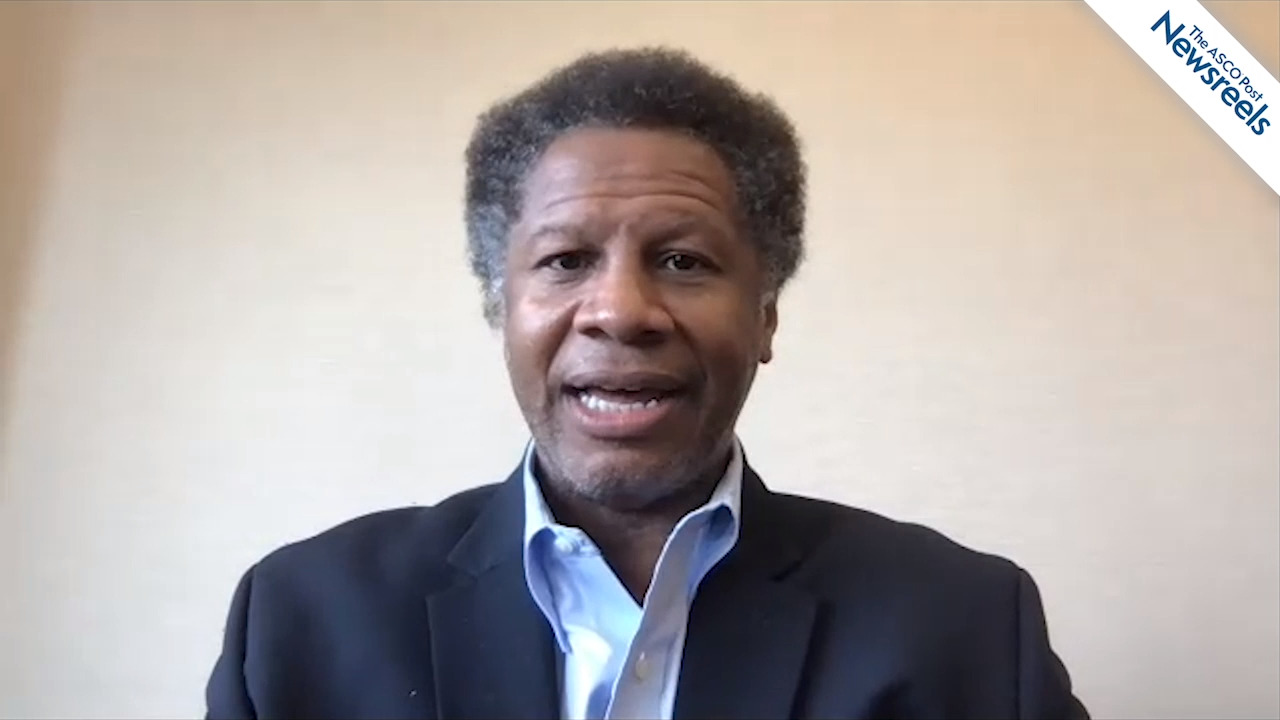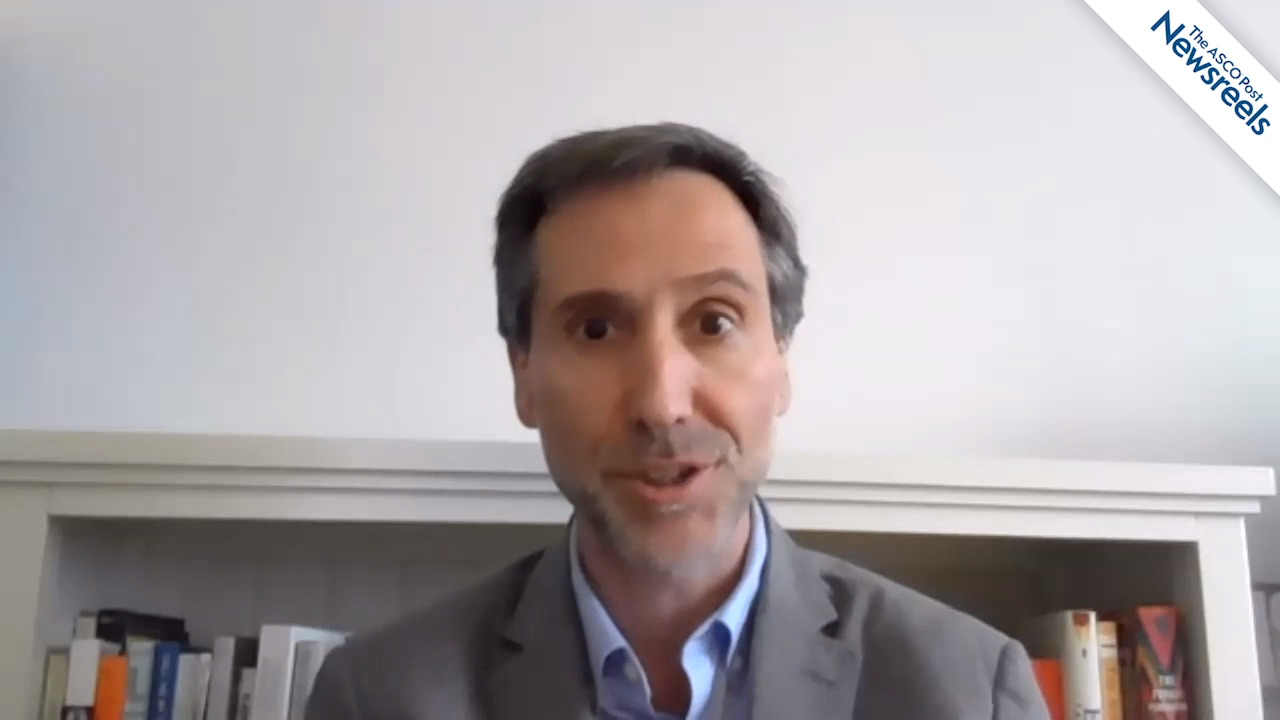Alfonso Bencomo Álvarez, PhD, on ALL, AML, and CML: Survival for Hispanic Patients Living Near the US/Mexico Border
AACR Virtual Annual Meeting 2020 II
Alfonso Bencomo Álvarez, PhD, of Texas Tech University Health Sciences Center, discusses his retrospective study of the incidence and survival for patients with hematologic malignancies residing at the United States/Mexico border. The analysis showed that 10-year survival rates for Hispanic patients with ALL, AML, and CML were significantly lower for those who lived in El Paso than for those who lived elsewhere in Texas (Abstract 4343).
The ASCO Post Staff
Stacey A. Fedewa, PhD, of the American Cancer Society, discusses the increasing incidence rates of colorectal, breast, kidney, thyroid, uterine corpus, and cervical disease in younger patients. Data show that colorectal cancer is increasing most rapidly, while breast cancer—the most common cancer among young women—is rising at a slower pace (Session ED35).
The ASCO Post Staff
Elizabeth H. Stover, MD, PhD, of Dana-Farber Cancer Institute, discusses an analysis of genomic alterations in patients with relapsed ovarian cancer who were treated with nivolumab plus bevacizumab in a phase II clinical trial. The study was conducted to identify potential biomarkers of response (Abstract 1048).
The ASCO Post Staff
Kala Visvanathan, MD, of Johns Hopkins Bloomberg School of Public Health, discusses her analysis of data from more than 10,000 women with ovarian cancer. The results suggest that atorvastatin and simvastatin, lipophilic statin cholesterol-lowering drugs, reduced ovarian cancer death rates (Abstract 5782).
The ASCO Post Staff
Robert A. Winn, MD, of Virginia Commonwealth University and the Massey Cancer Center, discusses the COVID-19 pandemic and how it is exacerbating disparities in cancer care among racial and ethnic minorities and the medically underserved who are disproportionately affected by the coronavirus (Session VSS06).
The ASCO Post Staff
Antoni Ribas, MD, PhD, of the University of California, Los Angeles, Jonsson Comprehensive Cancer Center, summarizes a special panel discussion on ways to eliminate cancer health disparities among racial and ethnic minorities. Increasing minority representation in clinical trials, thus ensuring diversity, and recognizing the accomplishments of minority scientists and clinicians in the cancer workforce are among the solutions discussed (Session VSS08).





